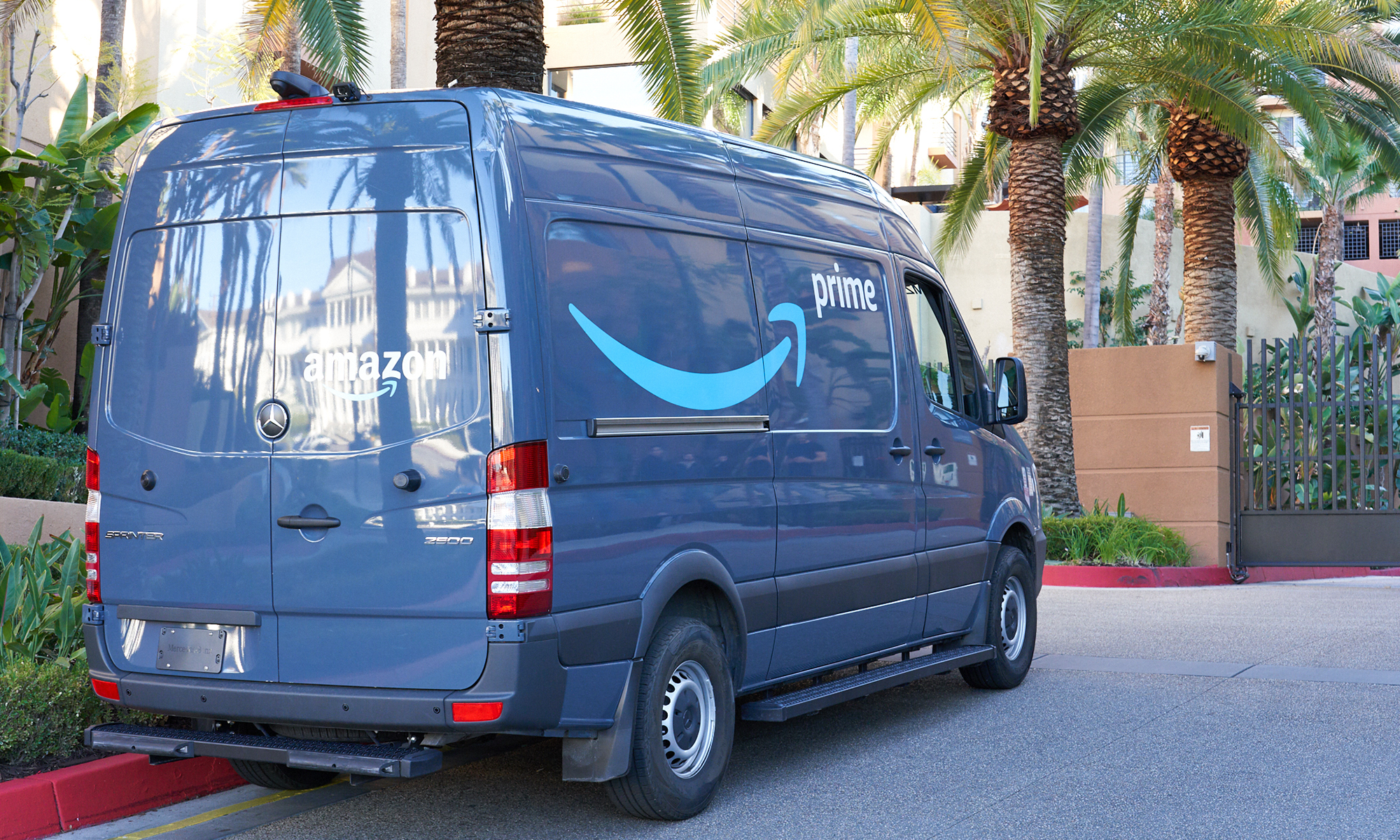Jeff Bezos has never pushed Amazon (AMZN +3.97%) to deliver quarterly numbers that impress Wall Street. That's very different from most publicly traded companies, but it's a strategy that investors should appreciate.
Amazon can't be judged on how it performs in any one quarter. Its CEO has always been willing to make a long-term investment and sacrifice short-term gains for longer-term success. That makes it harder to judge the company since it's not following what most retailers do.
Amazon, for example, recently said it plans to offer next-day delivery instead of two-day shipping to Prime members. The latter has cost the company billions of dollars over 20 years of building out its supply chain. That's money that takes away from earnings but provides a huge benefit for the company.

Amazon plans to offer next-day shipping as its standard. Image source: Getty Images.
Who competes with Amazon?
Amazon competes at the highest echelon of retail and cloud computing. On the retail side, it battles Walmart and Target, while in computing, it takes on Microsoft and Alphabet. That's formidable competition. However, it's fair to say that Amazon not only holds its own, but wins more often than not.
That's not always easy to see in the company's results. The online leader has steadily sacrificed short-term profits in order to build market share and set up its supply chain for the long term. Despite that, it's number are very impressive.
In its most-recent quarter, sales rose by 17%, to $59.7 billion. Net income rose, as well, climbing to $3.6 billion in Q1 ($7.09 per diluted share), compared to $1.6 billion ($3.27 per share) in the year-ago quarter. That's impressive, but the company's diversity is perhaps its best asset.
Amazon is a leading retailer and the premier digital retailer. It's also a leader in the cloud-computing space. The company doesn't break out many numbers. It won't tell investors how many Prime subscribers it has or how many Fire, Kindle, or Echo devices it sells.
The answer, however, is a lot, and that gives Amazon an impressive moat that protects it from shifts in demand. The company actually split its revenue in Q1 with $31.6 billion in product sales and $19.4 billion in service sales. Amazon Web Services (AWS) accounted for $5.4 billion in sales and about half its profit.
We tend to think of Amazon as a retailer but it's much more than that. It's a retailer that has tendrils into its customers in many different ways. In addition to Prime, the company has offered Fire, Echo, and Kindle devices at cheap prices. That puts the company inside tens of millions (maybe hundreds of millions) of homes. It's hard to quantify the impact of that advantage, but it creates a strong bond between company and customer.
Amazon is a buy
Bezos uses the mentality that it's always Day 1 at Amazon. That's a way of thinking that's built into the entire company. It's essentially a call to never rest on your laurels or stop thinking about the future.
It's that type of thought process that has the company making the long-term investments needed to offer next-day (and limited same-day) delivery. Taking a Day 1 view leads to a company willing to sell affordable digital assistants, tablets, and streaming devices just to gain market share.
Those moves may not pay off in the next quarter or even the next year. In the long run, however, they make Amazon a formidable company with a significant competitive advantage.
Only the biggest players can even consider challenging Bezos' company, and even then only selectively. It's always Day 1 at Amazon, and that means it's hard to know when the huge profits come. If you're willing to go on a long ride, however, the stock is definitely a buy.





